Have you been wondering, what is a CSA? It is a fantastic way to support a local farm and strengthen American farmers. You'll also get high quality produce, reduce your carbon footprint, and keep the people in your community at work. Now is the time of year to find and sign up for a CSA! But first, we'll fill you in on everything you need to know.
Participating in a CSA is a great way to show your support for American agriculture. It also gives you the peace of mind knowing exactly where and how your produce was grown. This local touch is at the heart of the movement toward American made, or in this case, American grown.
What is a CSA?
A CSA, which stands for Community Supported Agriculture, is a relationship of mutual support between farmers and consumers. The consumer pays a membership, or sponsor fee, usually at the beginning of the growing season which supports the costs of operating a farm. The farmer, then in turn, provides the consumer with goods that are fresh and locally grown.
How does a CSA work?
Every CSA can be different, as it all depends on how the farm sets up their own CSA program. CSA sign ups usually start at the beginning of the growing season (around April/May in New England). A farm should make it clear to the consumer how long their growing season is, how often the products are distributed, and what products would/could be included in each pick up. For example, some farms offer only vegetables in their CSA. While other farms might also include honey, jams, dairy products, eggs, meats, and freshly baked breads.
Purchasing a CSA is like buying stock in the farm, and can be just as risky. The farmer has little to no control over things such as weather and bugs which could lessen crops and decrease the bounty to the consumer.
However, the benefits far outweigh these risks and include:
- Knowing for sure that your food is local. There is no need to search for labels or find someone in the store to ask
- Knowing for sure what fertilizers or pesticides (if any at all) are used on your food
- Leaving less of a carbon footprint as there is little to no transport and packaging of goods
- Supporting a local farm and keeping the farmer in business
- Being part of the growing experience, as some farms encourage members to participate in weeding and harvesting
How to find a CSA
The Local Harvest website is a great place to start when considering a CSA. By entering your zip code, you will find CSAs that are close to you. Local Harvest, usually has links to the websites of these farms where you can gather more information to see if their CSA fits the needs of your family. Are you looking for organic farms? Do you want only vegetables, or are you looking for fruits, meats, and other options? Do you want to help out with weeding and harvesting? Does the farm supplement their membership rations with products from somewhere else? It is always best to speak directly with a representative from the farm to address your concerns if you are unclear from the information provided.
Local Harvest is one of my favorite sites when it comes to searching for locally grown food in general. Not only can you find a CSA here, but you can also discover new farmers' markets and nearby restaurants that offer farm to plate menus.
These are all great ways to keep local farms in business and to make sure we always have food grown in the USA!
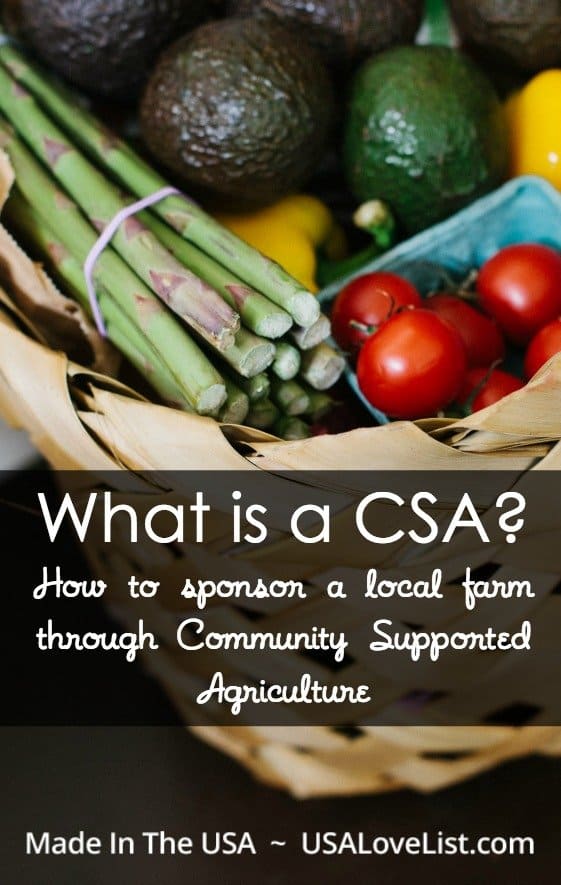

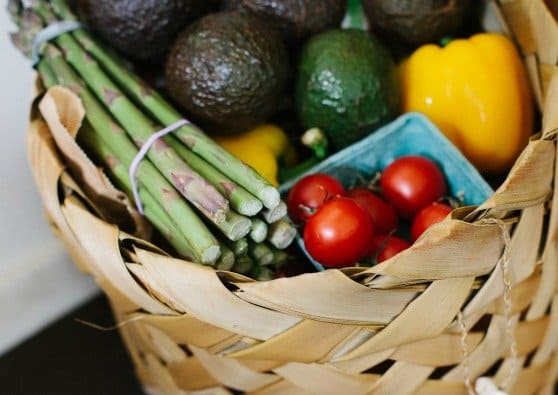
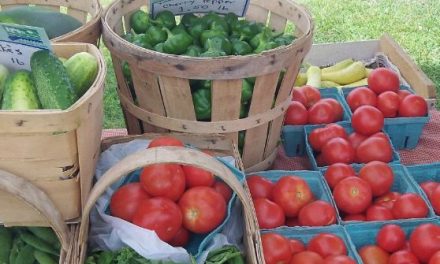



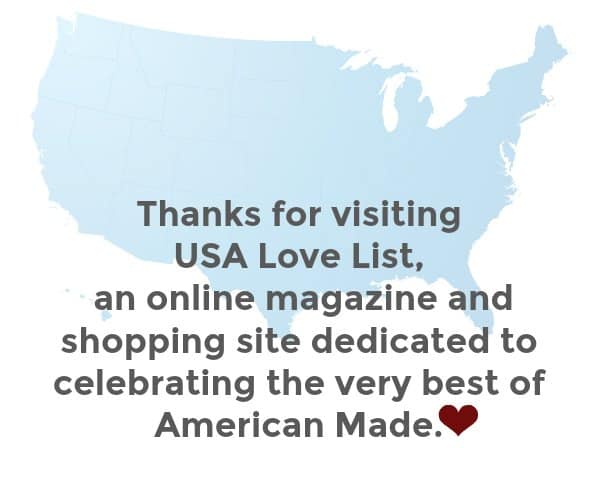





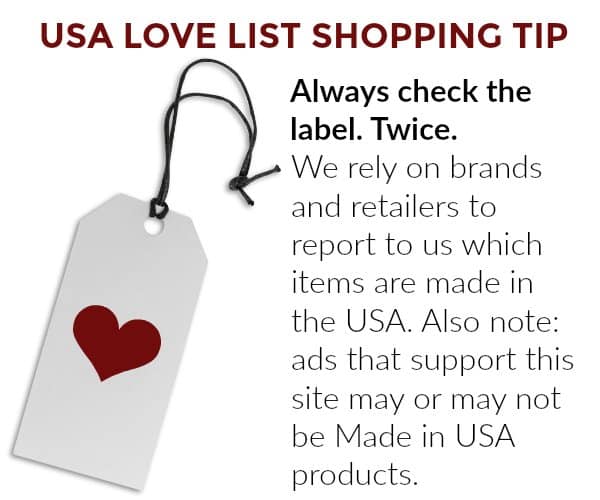
I’d never heard of this before, but it sounds really great!
thanks for sharing
This is a great idea that simply makes sense. We belonged to a community garden years ago — now we have a 40 x 40 plot in the yard.
great post
Thanks Sheila!
I participated in my local CSA for several seasons and loved it. I especially loved little surprises like honey and pepper jelly.
Thanks for the comment Jen! And thanks for supporting your local farm! 🙂
Some CSAs do import foods to fill out orders each week. So, if you are thinking about signing up for one, be sure to check with the coordinator or farmer to make sure that it is 100% local and/or USA based.
Thanks for the tip Becky! Good to know! When I talk to friends about finding a CSA (and it happens quite a bit), I ALWAYS recommend that they talk to the coordinator or farmer directly to address any of their concerns (usually about fertilizers, insecticides…) before committing to anything. I will remember to inform them of this too! Thanks again!